How Do I Know if My Dog Is Panting for No Reason?
If you’ve ever had a dog, you know that they can be pretty mysterious creatures. So why do they always seem to be following us around with their eyes? And why do they sometimes start panting for no reason?
Panting is a normal behavior for dogs, as it helps them cool down and regulate their body temperature. However, if your dog seems to be panting for no reason, it could be a sign of an underlying problem.
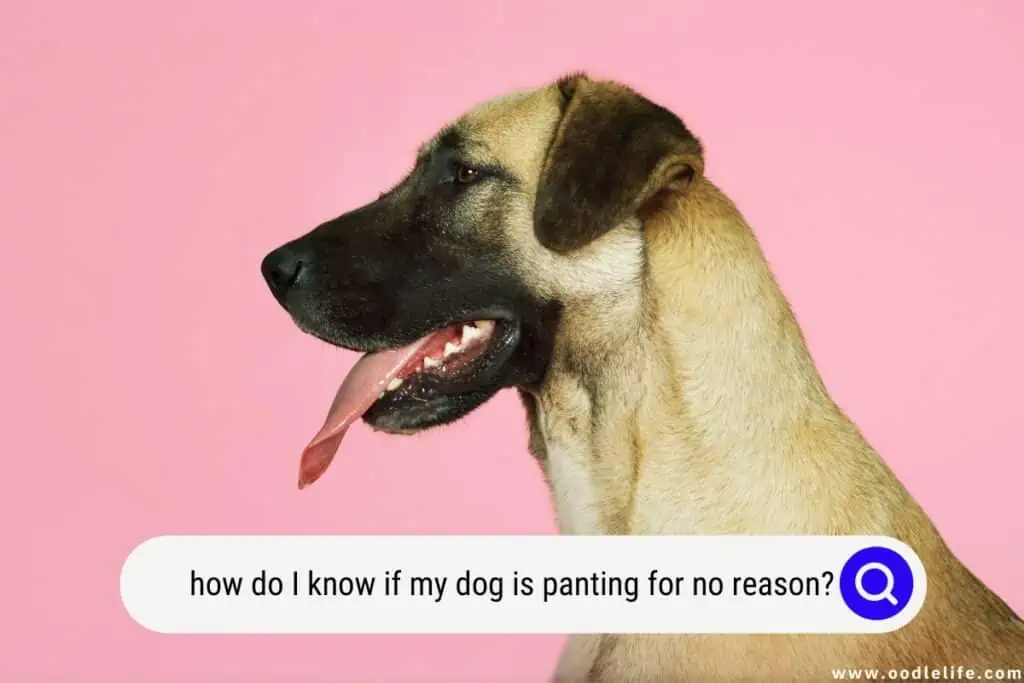
Heavy panting often indicates that your dog is feeling stressed or anxious. In this blog post, let’s discuss how you can tell when your pup’s panting is normal—and when you should seek help from your vet.
What Is the Purpose of Panting in Dogs?
Panting in dogs is a form of cooling and respiration. While people rely on sweat to cool their bodies down, dogs do not have this ability, so they pant to regulate their body temperatures. Panting is a process that allows the dog’s body temperature to drop in hot and humid weather conditions.
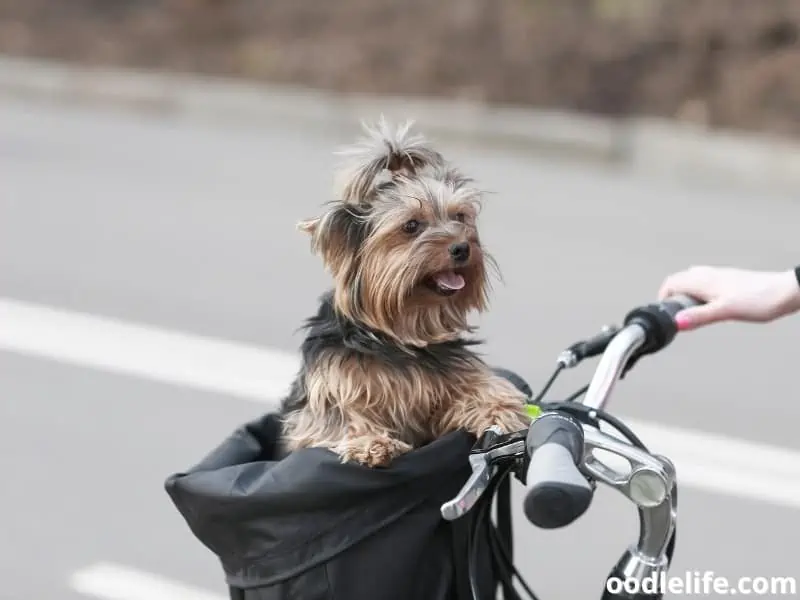
It’s important to note that panting should not be mistaken for labored breathing since it is completely normal for a healthy dog when temperatures get too high or when the animal gets excited by an activity like playing fetch or running around. That being said, if you notice your pet panting heavily or continuously over a more extended period, it’s best to contact a vet to rule out any health issues.
Normal vs. Abnormal Panting in Dogs
First things first, it’s essential to understand the difference between normal vs. abnormal panting in dogs. Normal panting occurs when your pup has been exercising or playing in hot weather; this type of panting signals that they are trying to cool down and regulate their body temperature. You may also notice that their tongue will hang out of their mouth more than usual during this time.
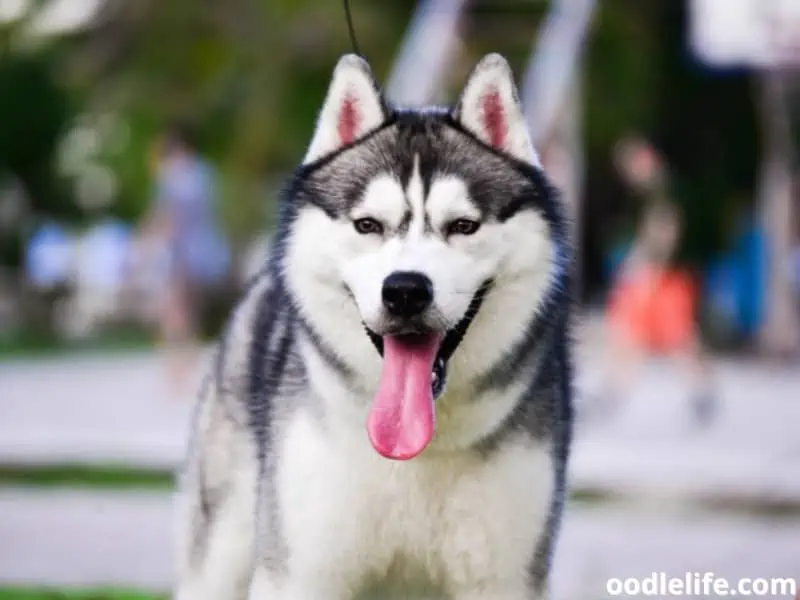
On the other hand, abnormal panting usually arises when your pup is feeling overly anxious or stressed out. This type of panting usually occurs without any physical activity beforehand and may be accompanied by pacing back and forth or trembling. If you start to observe any of these behaviors in your pup, along with his panting, then it could be a sign that something is amiss and requires immediate attention.
Why Is My Dog Panting for No Reason?
Does your pup pant for no apparent reason? If you’re worried that your pup is panting for longer than usual or unusually intensely, it can be difficult to know what action to take. Here are some reasons why your dog may be panting:
Panting as a Natural Cool Down Mechanism
When it’s hot outside, dogs will often pant in an effort to cool down their body temperature. This is especially true of brachycephalic (flat-faced) breeds such as Pugs and Bulldogs, who are less able to regulate their temperature through their noses. So if your pup is panting, but you suspect that the weather isn’t overly warm, there could be other causes of their behavior.
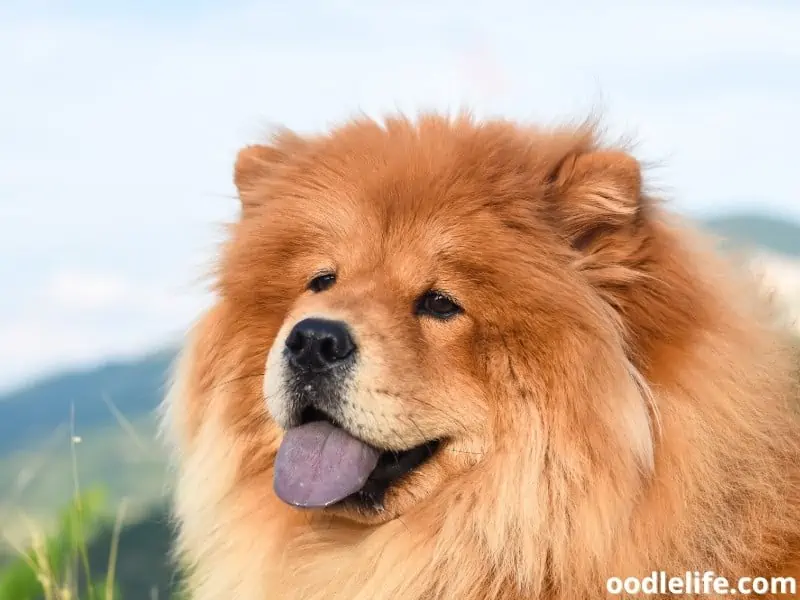
Panting After Exercise
Dogs often pant after they have been exercising and playing around. This can happen even when the outdoor temperatures aren’t particularly hot, as exercise increases the dog’s body temperature regardless of the weather conditions. Many dogs also find running around and playing with toys very exciting, which can cause them to ‘overheat’ emotionally, too, so even if it isn’t physically hot, they may still begin panting from being over-excited!
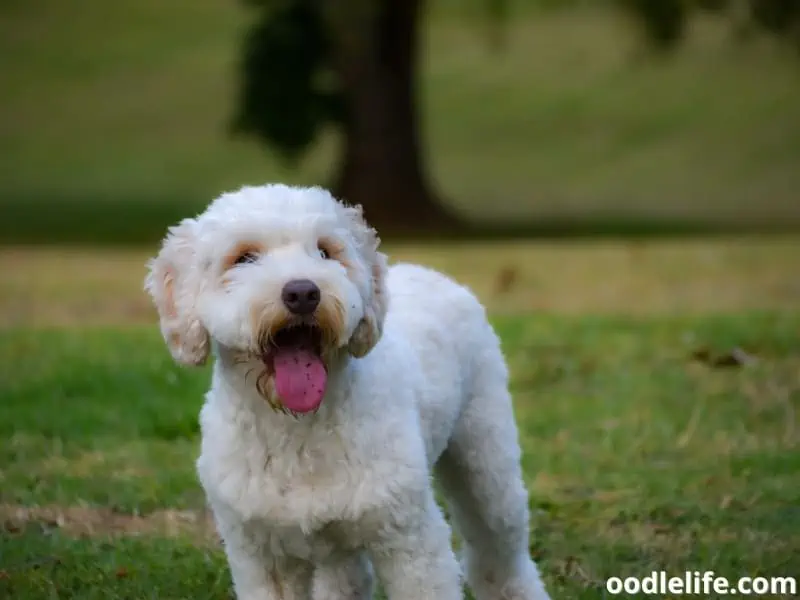
Stress-Related Panting
There are several causes of stress-related panting in dogs, including loud noises, separation anxiety, and uncomfortable temperatures. For example, when a dog is exposed to loud noises such as fireworks or thunderstorms, it may become distressed and start panting heavily.
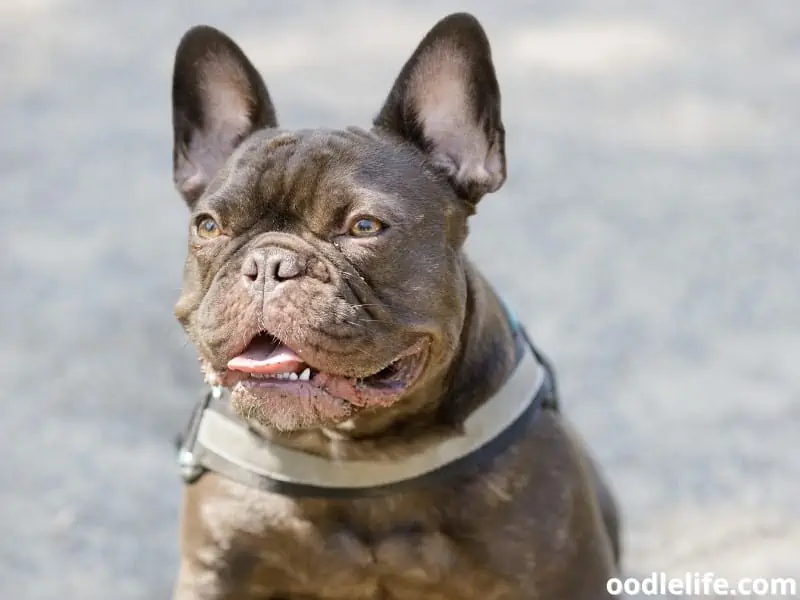
This type of stress-related panting is often accompanied by pacing and other signs of discomfort. Separation anxiety can also cause panting; when left alone, some dogs become overwhelmed with fear or loneliness and start panting as a result.
Finally, some breeds are more sensitive to temperature fluctuations than others; if your dog is panting even though the room isn’t particularly warm, it might be too hot or cold for their liking.
Excitement
It’s normal for dogs to pant when they’re excited by something—like playing with a toy or going on a walk—but it’s essential to make sure that this type of panting isn’t too excessive and doesn’t happen too often. Dogs should never overheat due to excitement, so if your pup appears overly energetic and unusually hot after playing for extended periods, it may be time to take a break from playtime until they cool down again.
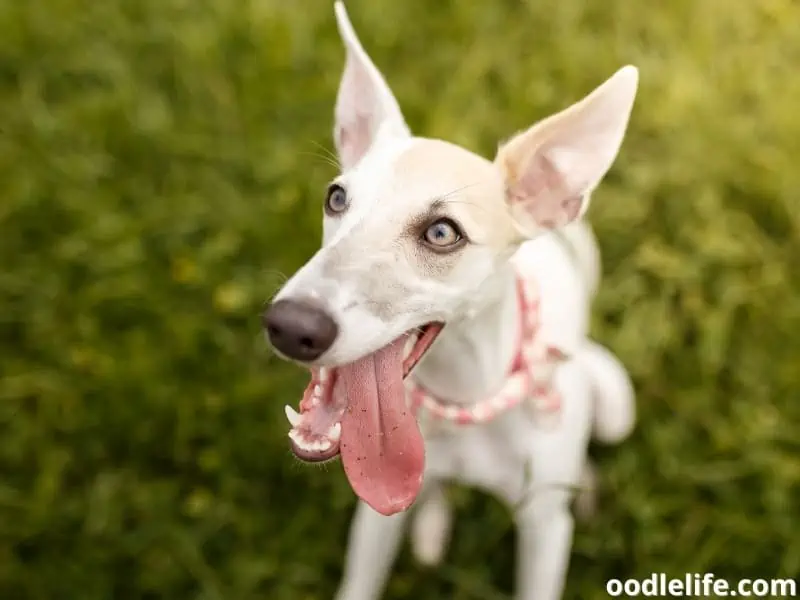
Pain or Discomfort
Panting can sometimes be a sign that your pup is in pain or discomfort from an injury or illness such as arthritis, heart disease, respiratory problems, cancer, dental disease, anxiety disorders, gastrointestinal issues, and other conditions. Always consult with your vet if you suspect that pain may be causing your pup’s excessive panting so they can properly diagnose any underlying issues and create an appropriate treatment plan for them.
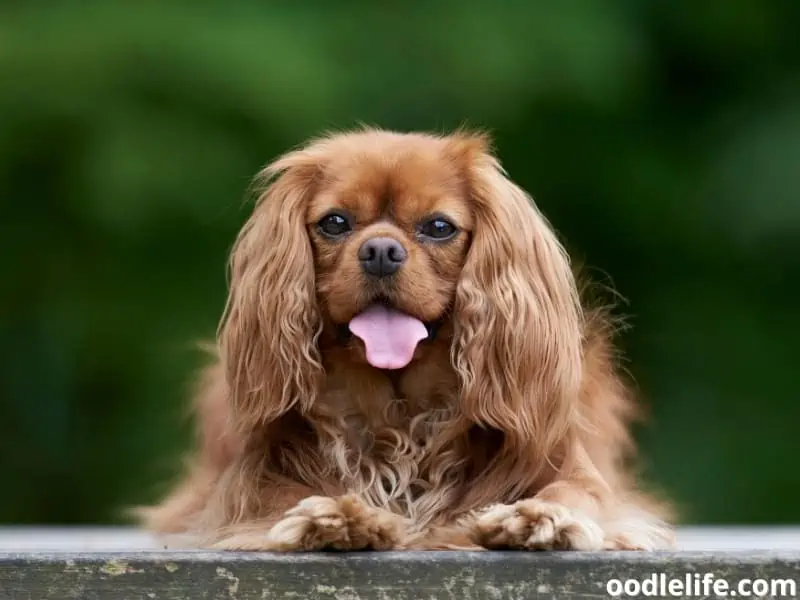
Panting Can Also Be a Sign of Old Age in Dogs
As our canine companions get older, panting can become a part of their lives just like it is with ours. If your pup is getting up there in years, it may begin to show signs of an increased respiratory rate and more frequent breathing.
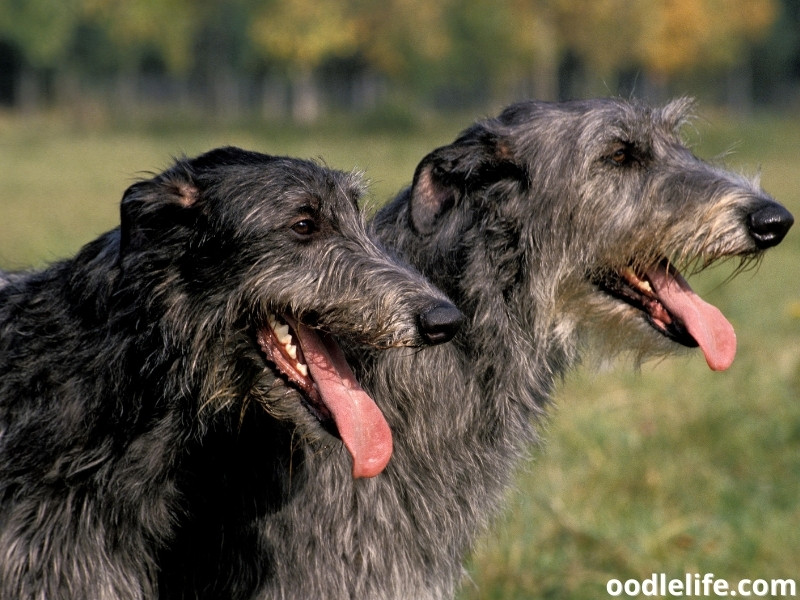
While panting is expected on hot days or during exercise, panting due to old age is often more consistent – it can occur at rest as well as when the dog is active. Of course, if you suspect something more serious is causing your dog to pant more than usual, take them to the vet immediately. Otherwise, be sure to keep an eye on your aging doggie to ensure they are feeling fit and healthy well into their golden years!
Why Does My Dog Pant When Resting?
According to canine experts, resting panting is a normal behavioral response. Panting helps regulate their body temperature, so even lying down and resting requires some cooling off from the dog. Additionally, dogs have an incredible sense of smell, so that they may be huffing and puffing due to any intriguing aromas in the air or ones coming from your home.
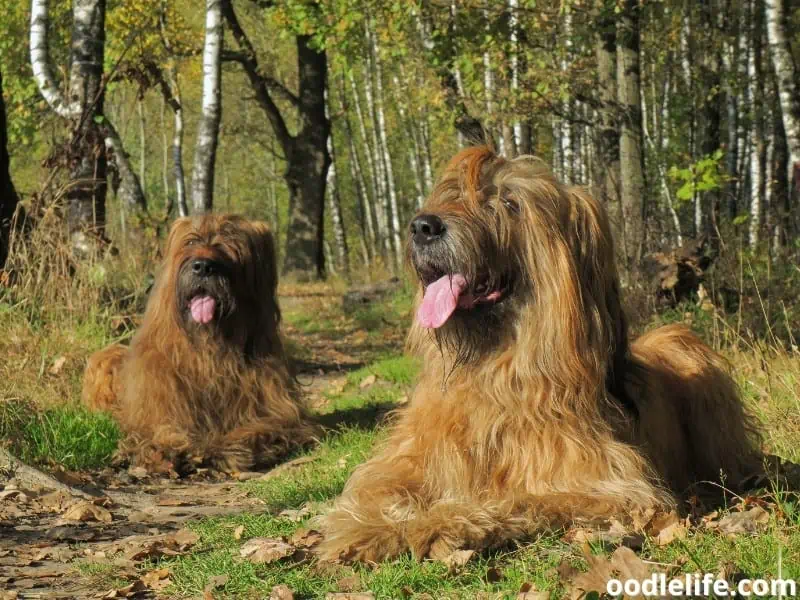
Lastly, don’t forget that your pup is always listening for cues from both you and its environment – if something or someone enters your home unexpectedly, there may be a valid reason for why your pup has suddenly decided to break out into panting. Rest assured that these causes are all very common and normal reasons for this behavior!
How Can I Tell if My Dog Is Panting Too Much?
Panting is a normal behavior for dogs; however, there can be times when it signifies an underlying medical issue. Therefore, it’s essential to take note if your pup is panting more than usual, especially when the weather isn’t hot or the dog hasn’t exerted itself through vigorous exercise.
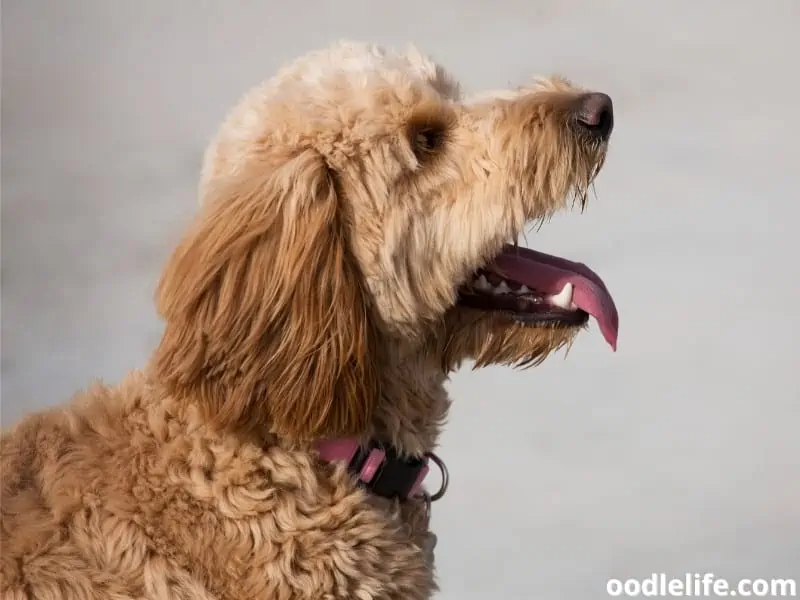
Excessive panting may also be accompanied by other symptoms such as restlessness, shivering, respiratory problems, or disorientation and should prompt a call to the vet. If you find your dog’s panting becoming more frequent or labored in any way, you should definitely have it checked out immediately. Remember, early detection of any potential health problem in pets can ensure a better prognosis and quicker recovery!
How To Help Your Dog Stop Panting?
Panting is a common behavior for dogs to regulate their body temperature and express emotions. However, it can still be concerning for pet owners when their furry friends pant excessively.
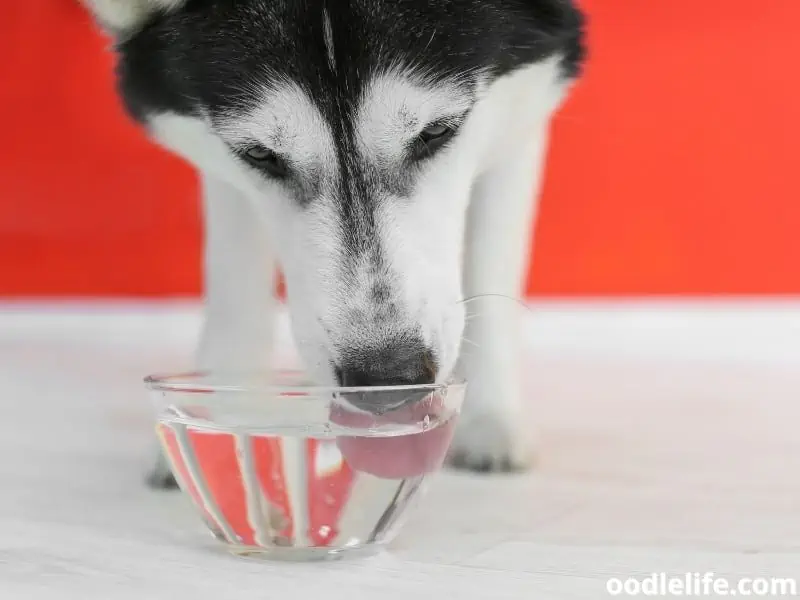
If your pup seems to be catching its breath much more often than usual, here are some tips to help them cool down and stop panting.
- Provide plenty of access to water during the warmer months, or anytime they have exerted energy. Water helps hydrate your pup and allows them to replenish fluids lost through panting.
- Let your dog take frequent breaks while exercising, as they need more rest than usual when the temperatures rise.
- Try introducing cooling accessories like towels soaked in cold water or specially designed cooling vests to regulate your pup’s body temperature.
- Make sure that their collar isn’t too tight, as this can restrict airflow.
Remember that if you notice excessive panting accompanied by other symptoms like confusion or collapse, consult a veterinarian as soon as possible.
Conclusion
Panting has many different causes ranging from excitement to pain and discomfort, so it’s important to pay close attention to any changes in behavior that could indicate an underlying issue with your pup.
If there is ever any doubt about why your pup might be panting excessively, contact your veterinarian right away so they can accurately assess their condition and provide the necessary care needed for them to feel better quickly. With proper care and understanding of what might be causing their distressful behavior, you can ensure that your pup will continue living a long and healthy life!